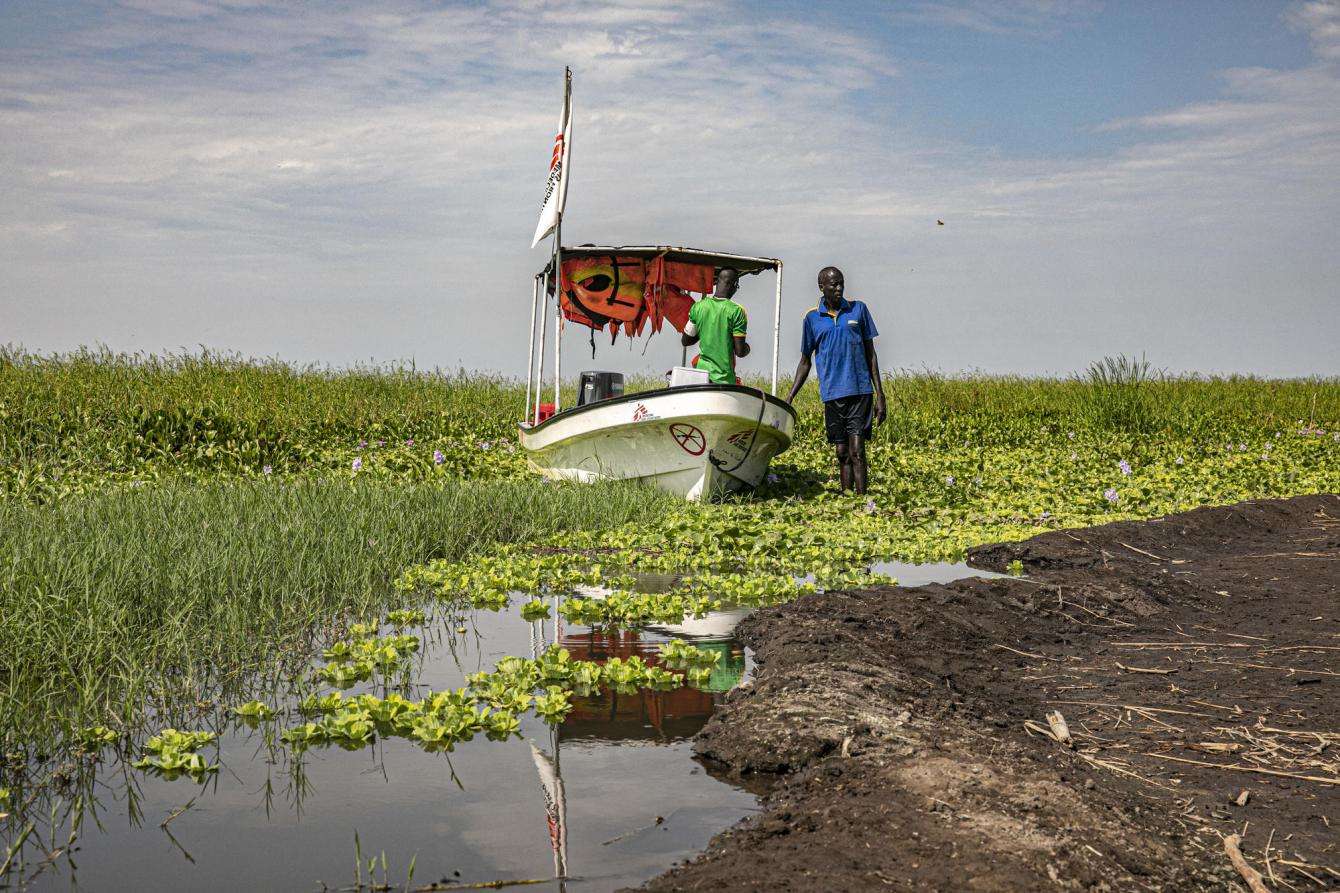In South Sudan, massive flooding has affected nearly a million people, leaving many stranded in their villages and cut off from essential health services. Doctors Without Borders/Médecins Sans Frontières (MSF) mobile clinics are bringing care and essential supplies to some of the worst-affected areas. Here, MSF logistics coordinator Kim Phillips describes the situation on the ground in the northeast of the country.
“One of the worst-affected areas is Ulang in the northeast. The devastation that we’re witnessing there is unprecedented. The people in these areas are used to flooding, but they’re telling us that these are the worst floods they’ve ever seen.
Many people have lost everything. They’ve lost their houses, they’ve lost their cattle, and they’ve lost their crops. These are people who had very little in the first place, but they’re now in a desperate situation.
Our emergency teams are out there every day, traveling in boats from village to village. As an emergency organization, we need to go where the people are. We’re providing health care through mobile clinics and distributing essential items, such as plastic sheet, blankets, cooking pots, and mosquito nets and water. We’ve also set up water treatment facilities in two areas.
We’re doing our best to move people who need further medical care out of the area. Our biggest concern at the moment, however, is the risk of a cholera outbreak. We’re also on the lookout for an increase in cases of diarrhea and for a spike in patients with malaria.
So many areas have been cut off, and whole villages are underwater or have been turned into swamps. Under these conditions, it’s very difficult for people to move around. They can’t wade out of the area, as there is a real risk of snakes and crocodiles.
There was one woman we met who had lost virtually everything. Her home was a wreck, but she was determined to do something to help. She had taken the wooden walls of her house and had built a makeshift raft to ferry children to dry ground. She was doing what she could.
Getting around this area of South Sudan is a challenge, even at the best of times. It’s a remote, inaccessible region, with few roads to speak of. Even though we’ve had a couple of days without rain, there are no signs that the floodwaters are receding. The water is still coming in from Ethiopia along the Sobat river.

Even when the water does finally recede, the people here will still face serious difficulty. People will need new shelters and, with agriculture wiped out and people’s cattle gone, malnutrition will be a real and ongoing risk.
It’s heartbreaking to think about the years of conflict and civil war that these people have already lived through. And now they’re suffering even more. It’s difficult not to get emotional about it. Sometimes, after I’ve been out on the boats and I go back to my tent, where it’s dry and I have food, I ask myself if there’s more we could and should be doing. ‘How can we reach more people? What else can we do to help?’ I know the rest of the team feel the same.
But it does spur us on. I’ve been with MSF for many years now, but I never tire of the job. I’m always grateful to be able to do what I do. That’s because I know the impact that MSF has. Even after this flooding is over, I know we will still be here, providing vital assistance where we can.”




